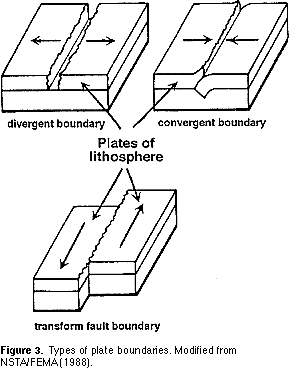Seafloor spreading theory that oceanic crust forms along submarine mountain zones known collectively as the mid ocean ridge system and spreads out laterally away from them.
The seafloor spreading process at ridges produces what kind of faults quizlet.
Basalt the once molten rock that makes up most new oceanic crust is a fairly magnetic substance and scientists began using magnetometers to measure the magnetism of the ocean floor in the 1950s what they discovered was that the magnetism of the ocean floor around.
The process that continually adds new material to the ocean floor.
The formation of the new crust is due to the rising of the molten material magma from the mantle by convection current.
Seafloor spreading takes place at midocean ridges and produces basalt the rock that makes up the oceanic crust.
Sea floor spreading occurs when the sea floor spreads apart along divergent boundaries and forms the mid ocean ridge.
The magnetism of mid ocean ridges helped scientists first identify the process of seafloor spreading in the early 20th century.
This idea played a pivotal role in the development of the theory of plate tectonics which revolutionized geologic thought during the last quarter of the 20th century.
The seafloor spreading process at ridges produces what kind of faults.
Spreading rate is the rate at which an ocean basin widens due to seafloor spreading.
The mid atlantic ridge and east pacific rise are examples of midocean ridges.
The place where 2 plates come together or converge.
They are the shallowest major features of the seafloor.
The process of sea floor spreading.
The seafloor spreading process at ridges produces what kind of faults.
Spreading rates determine if the ridge is fast intermediate or slow.
The indian ocean has no oceanic ridge.
The lithosphere cools as it moves away from the ridge axis by sea floor spreading and cooler rocks are lower density so the sea floor gets deeper as the lithosphere gets more dense.
Seafloor spreading helps explain continental drift in the theory of plate tectonics.
Normal faults the atlantic and pacific basins have oceanic ridges.
As the magma is thrust up and hardens it forms new crust and the ocean floor on both sides of the mid ocean ridge move outward.
Magma is pushed up through cracks in the crust along the mid ocean ridge.
Volcanoes mountain ranges deep ocean trenches.
Along the mid ocean ridges where sea floor spreading occurs.
Seafloor spreading is a process that occurs at mid ocean ridges where new oceanic crust is formed through volcanic activity and then gradually moves away from the ridge.
Midocean ridges reach a typical summit elevation of 2 700 meters below sealevel.
What kind of changes in earth s surface does the motion of plates produce.










